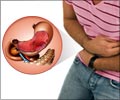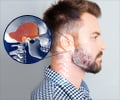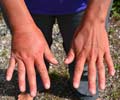
‘Physicians need to be aware of the association between GERD and temporomandibular disorder and consider multidisciplinary management programs to help patients with chronic pain.
’
Tweet it Now
Researchers from China and the United States looked at data on 1522 patients with chronic TMD, of whom 69% (1048) were women, to understand the relationship between chronic TMD and GERD and to determine if anxiety, somatization and depression influence the association. They found symptomatic GERD was a risk factor for TMD, and people with a long history of GERD had a higher risk of TMD than those with a shorter history."The interactions between chronic musculoskeletal diseases, gastrointestinal diseases, mental disorders, and sleep problems are complicated," writes Dr. Jihua Chen, The Dental College of Georgia, Augusta, Georgia, and The Fourth Military Medical University, Xi'an, China, with coauthors.
"There is evidence to support the bidirectional nature of the associations among these comorbidities, and patients may be stuck in a cycle in which undermined sleep, somatization, and anxiety exacerbate the pain, with the pain also leading to sleep problems and mental disorders."
The authors suggest physicians need to be aware of the association and consider multidisciplinary management programs to help patients with TMD and chronic pain.
"Physicians and patients may overlook the association between chronic musculoskeletal disease and gastrointestinal symptoms," write the authors.
Advertisement
"Associations among gastroesophageal reflux disease, mental disorders, sleep, and chronic temporomandibular disorder: a case-control study" is published August 19, 2019.
Advertisement














